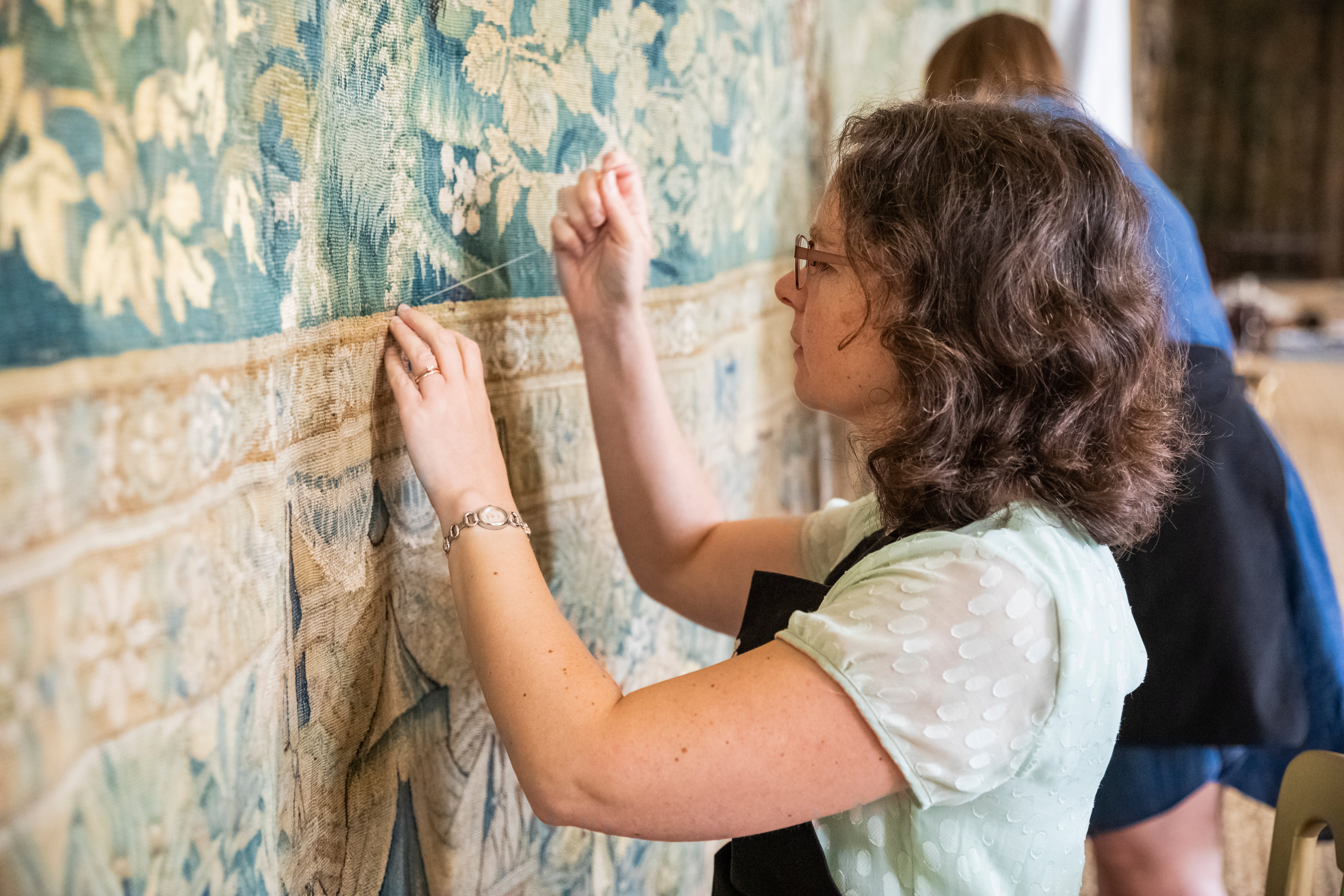Mixed bag as National Trust sees drop in memberships but jump in visitors
The National Trust said the insights suggest more people could be prioritising paying for special days out

Your support helps us to tell the story
From reproductive rights to climate change to Big Tech, The Independent is on the ground when the story is developing. Whether it's investigating the financials of Elon Musk's pro-Trump PAC or producing our latest documentary, 'The A Word', which shines a light on the American women fighting for reproductive rights, we know how important it is to parse out the facts from the messaging.
At such a critical moment in US history, we need reporters on the ground. Your donation allows us to keep sending journalists to speak to both sides of the story.
The Independent is trusted by Americans across the entire political spectrum. And unlike many other quality news outlets, we choose not to lock Americans out of our reporting and analysis with paywalls. We believe quality journalism should be available to everyone, paid for by those who can afford it.
Your support makes all the difference.The National Trust has seen visitor numbers jump by 5% in the last year despite a drop in membership numbers.
The charity’s annual report revealed changing visitor spending patterns across the UK.
It said total visitor numbers rose by 5% to 25.3 million for the 2023/24 financial year, compared to the year before.
But there was an even higher jump in non-members visiting the sites – those who pay on the door for individual trips – with a 12% year-on-year rise, it found.
On the other hand, membership numbers dropped by 89,000 to 2.62 million members in 2023/24, as more people moved to paying on the day.
This reflects a wider trend seen across the tourist attraction sector, according to the Association of Leading Visitor Attractions (ALVA).
The National Trust said the insights suggest more people could be prioritising paying for special days out over committing to annual subscriptions due to rising inflation, higher costs and a large drop in household discretionary spending.
Young families, which have been hit hard by the cost-of-living crisis, were the least likely to renew their membership in the last year, the National Trust found.

Hilary McGrady, director general of the National Trust, said: “It’s really heartening that people still want to spend time in and support amazing cultural and natural places, whether that’s immersing themselves in art or wandering through our gardens and woodlands.
“We know the cost-of-living crisis is still biting and we’ll keep doing more to give everyone a great day out.”
She said the charity has designed a new “Explorer Pass” and is offering free passes where it can for those who are unable to afford a visit to National Trust sites.
Bernard Donoghue, director of the Association of Leading Visitor Attractions, said: “UK consumers have been making tactical decisions about how they spend their leisure pounds and leisure hours, and this caution continues.
“Our members have been reporting that there has been a rise in the number of visitors, particularly families, who have been opting for single-entry tickets, rather than taking out memberships.”
But looking forward to this year, the National Trust said memberships rose to 2.63 million as of the end of June amid early signs that cost-of-living pressures could be easing.
Elsewhere in the annual report, the charity said spending in shops and cafes was up last year compared with 2022/23.
The report also highlighted a strong year for heritage, with the acquisition of the former home of pioneering gardener Gertrude Jekyll, Munstead Woods.
The conservation spend of £178 million on historic buildings and collections was just shy of the previous year’s record spend, it added.
Meanwhile, £117.9 million of fundraising income was raised thanks to individual donors, charitable trusts, grant funders, corporate partners and gifts in wills.
Within the record fundraising year, £3 million was raised from second-hand bookshops, it added.
The charity said £5.5 million was spent in 2023/24 on improving physical access for people with disabilities.
In terms of work, the Trust’s longest-ever conservation project was completed – the 24-year initiative to restore 13 Gideon tapestries and rehang them at their historic home of Hardwick Hall.
The charity also continued its work to explore the history of places in its care in new ways citing a collaboration between Kedleston Hall and jewellery designer Anisha Parmar on an exhibition exploring identity and power through female adornment, and celebrating South Asian history.

Ms McGrady said: “In the last financial year we celebrated some fantastic projects at the National Trust, but these were set against the backdrop of multiple global conflicts, the continuing effects of climate change and acute financial pressures.
“The unprecedented response to the felling of the Sycamore Gap tree in September 2023 brought home just how much we value our natural heritage.
“We’ll continue doing everything we can to protect nature and fight climate change, and we’ll keep looking after the treasured and historic places in our care.”